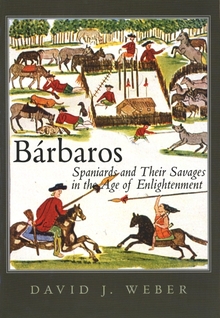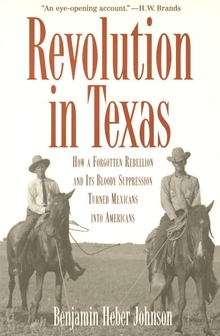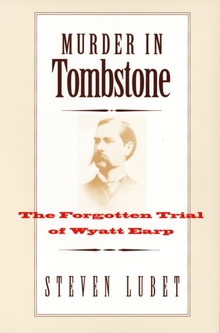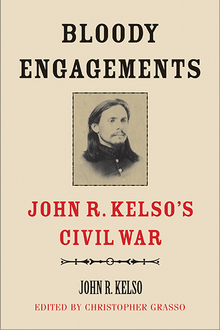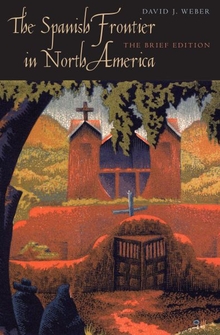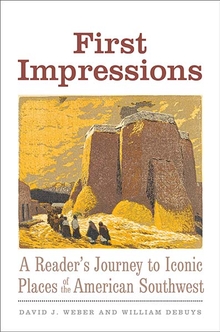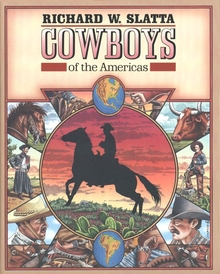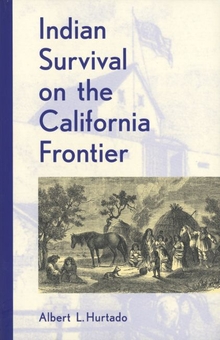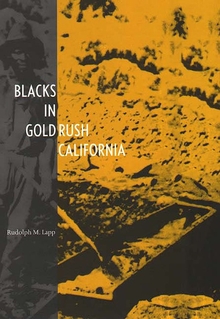Bárbaros
WARNING
You are viewing an older version of the Yalebooks website. Please visit out new website with more updated information and a better user experience: https://www.yalebooks.com
Spaniards and Their Savages in the Age of Enlightenment
David J. Weber
In this panoramic study, David J. Weber explains how late eighteenthcentury Spanish administrators tried to fashion a more enlightened policy toward the people they called bárbaros, or “savages.” Even Spain’s most powerful monarchs failed, however, to enforce a consistent, well-reasoned policy toward Indians. At one extreme, powerful independent Indians forced Spaniards to seek peace, acknowledge autonomous tribal governments, and recognize the existence of tribal lands, fulfilling the Crown’s oft-stated wish to use “gentle” means in dealing with Indians. At the other extreme the Crown abandoned its principles, authorizing bloody wars on Indians when Spanish officers believed they could defeat them. Power, says Weber, more than the power of ideas, determined how Spaniards treated “savages” in the Age of Enlightenment.
DAVID J. WEBER is Dedman Professor of History and director of the William P. Clements Center for Southwestern Studies at Southern Methodist University. He is the author or editor of more than sixty scholarly articles and twenty-two books.
A selection of the History Book Club
"This is a pathbreaking, tightly organized, surefooted book. At last we have something solid and comparative in the field of colonial Latin American frontiers, and unincorporated Indians can never again be dismissed as unimportant to the story of Spain in America. The book is a pure delight."—Amy Turner Bushnell, The John Carter Brown Library
“A masterful synthesis that will serve as a necessary point of departure for historians working in different areas of frontier or borderlands history for many years to come.”—Cynthia Radding, Director, Latin American and Iberian Institute, University of New Mexico
"A stunning book that will be read for generations and lauded for its awesome research, judicious analysis, and graceful prose."—James Schofield Saeger, Lehigh University
“A lucidly written landmark study, packed with insight, patterns, regional and temporal specificity, and memorable voices. A key to much about Latin American history. Everyone who wants to write about the colonial period must reckon with this book.”—William B. Taylor, University of California, Berkeley
“David J. Weber, an eminent scholar of Spanish American History, has written a magisterial study of Spain’s relations with [the] Bárbaros. . . . Built upon the archival research of schools, and documented meticulously regarding Spanish perspectives, Weber’s book is a masterful work by a master craftsman.”—Christopher Vecsey, H-Net Reviews
“[An] important new book. . . . Bárbaros . . . displays the same qualities in the author as its predecessor (The Spanish Frontier in North America); a mastery of the literature and impressive erudition; a capacity for the patient teasing out of the truth from sources that are often incomplete and partisan; and a lucid narrative style that carries the reader along. . . . . To have subsumed so much information into so clear and comprehensive a survey is a formidable achievement. It is a particularly valuable achievement.”—J.H. Elliott, New York Review of Books
Publication Date: August 15, 2006
41 b/w illus.

